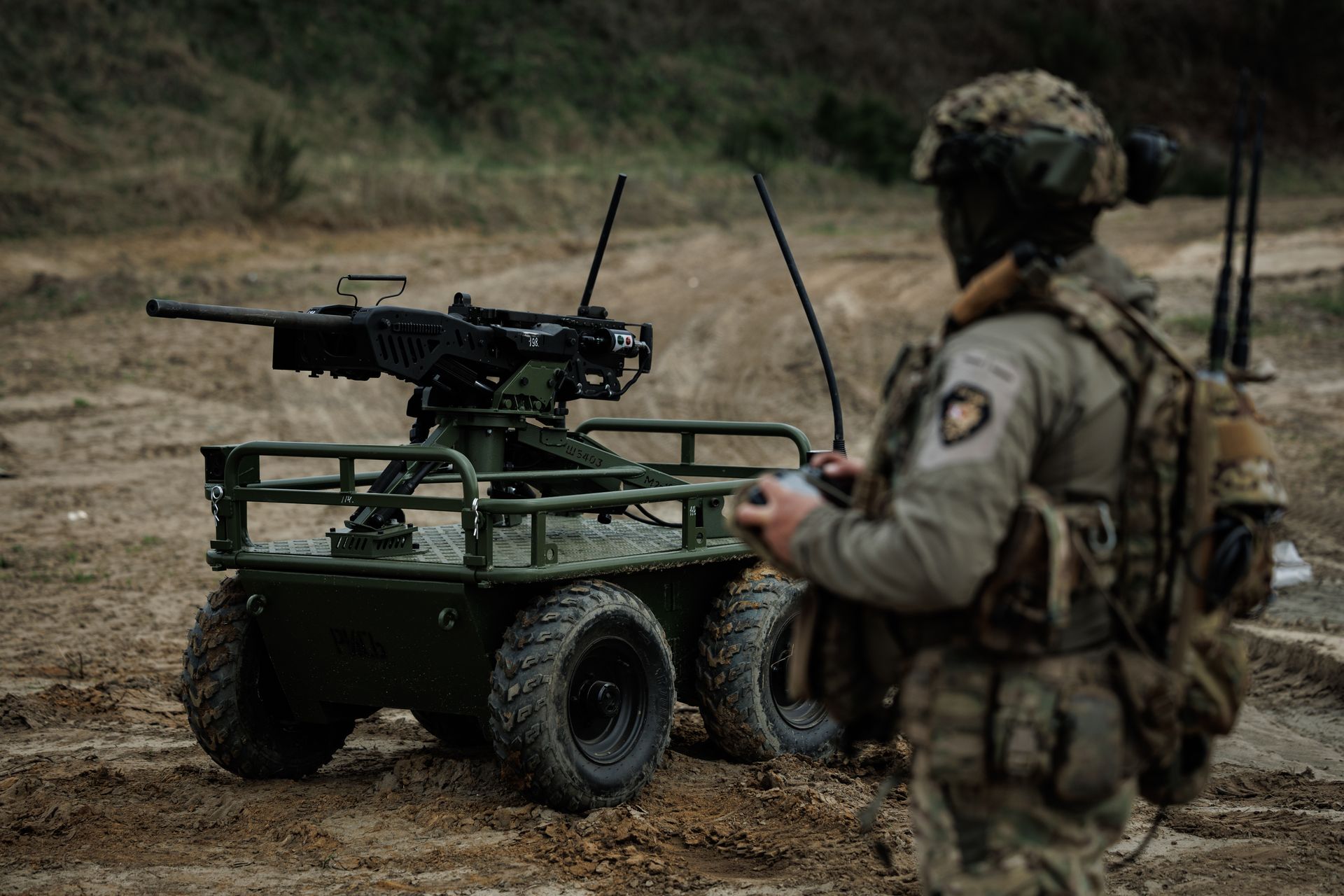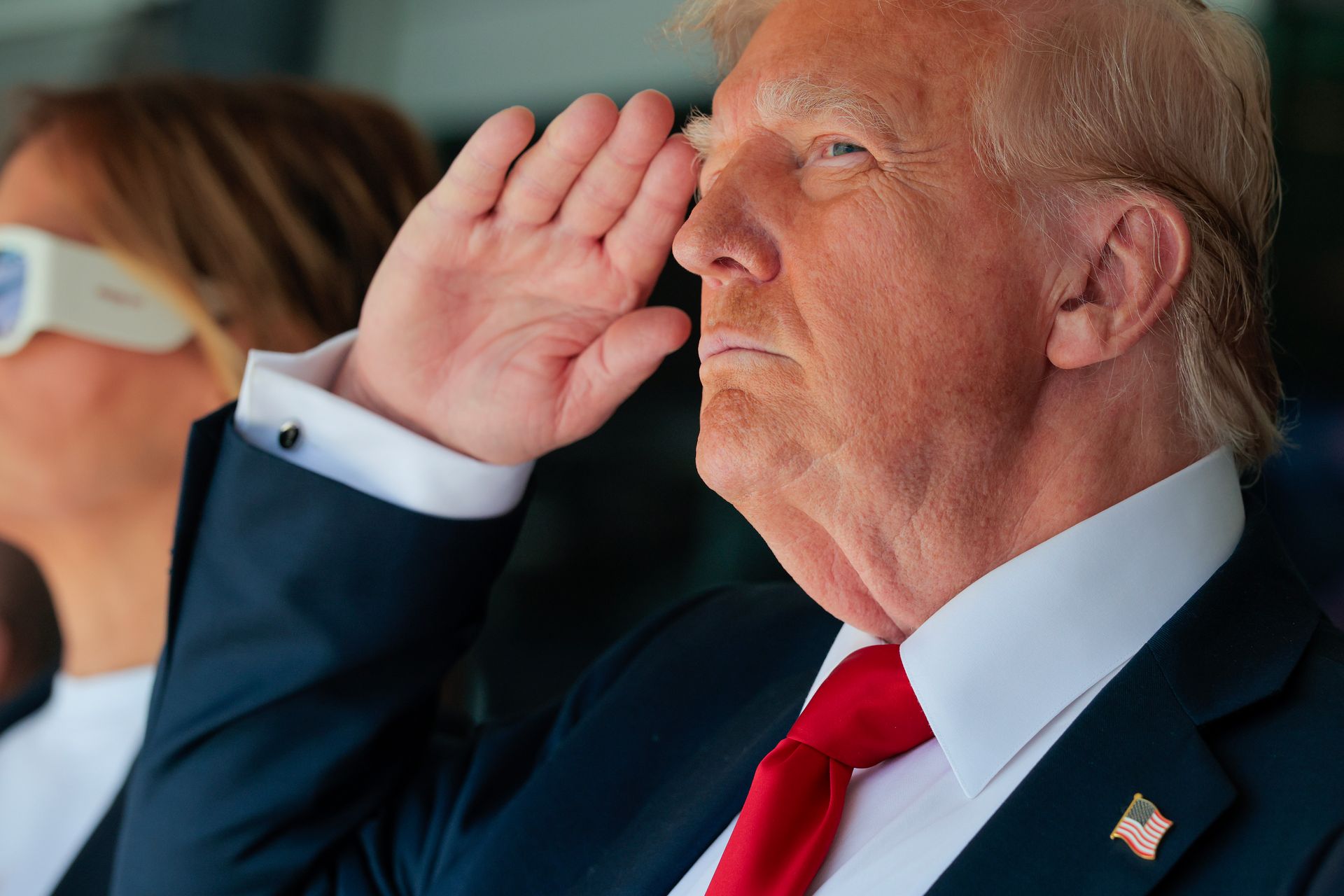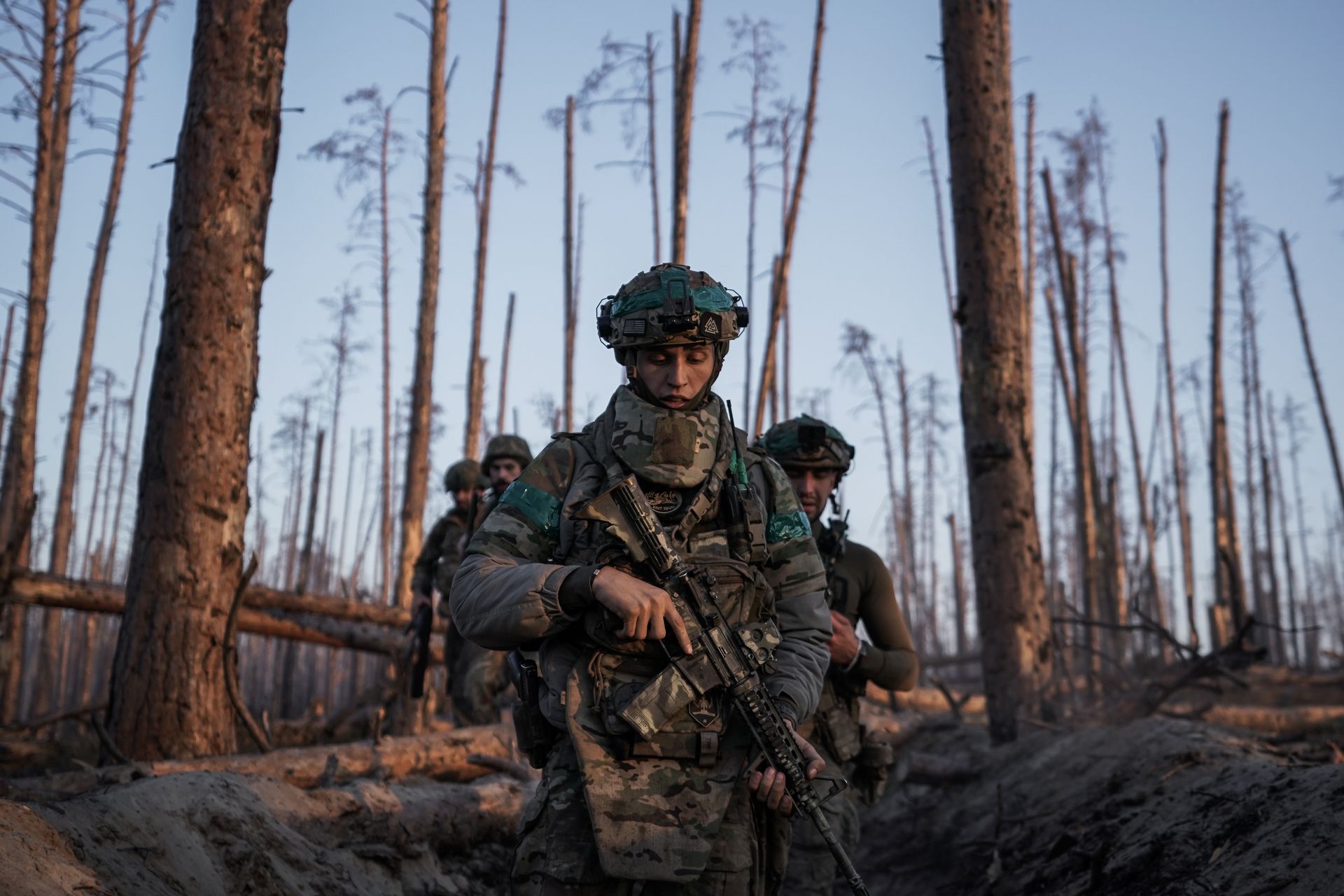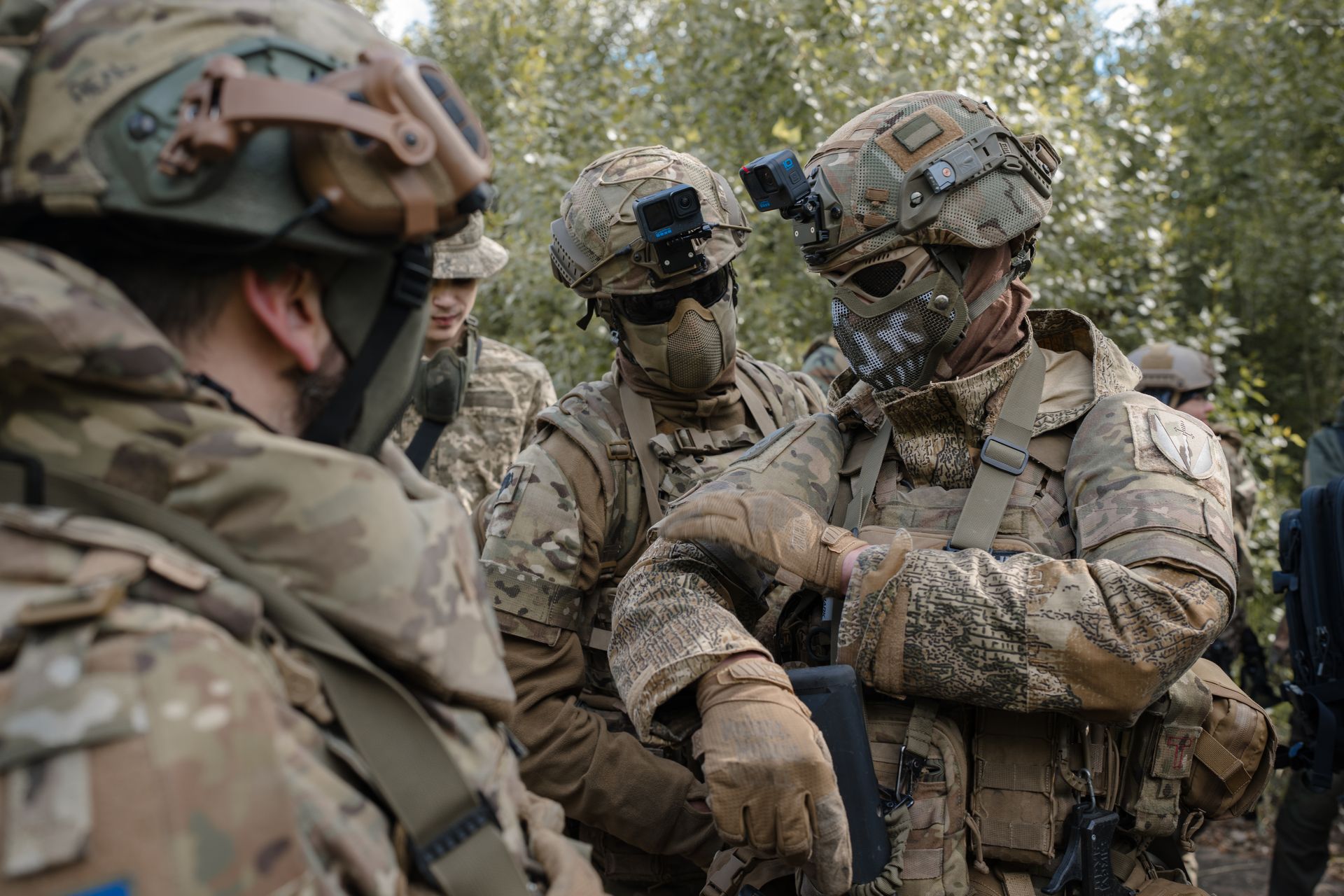Ukraine war latest: Mass attack hits cities overnight as Ukrainians brace for 50 more days of Russian terror

Key developments on July 16:
- Mass attack hits cities overnight as Ukrainians brace for 50 more days of Russian terror
- Putin unfazed by Trump's threats, plans to fight on in Ukraine, Reuters reports
- Patriot missiles bound for Ukraine already being shipped, Trump says
- US-founded extremist group claims killing of Ukrainian security service colonel in Kyiv
- Latvian mayor injured in Russian strike while delivering aid in Ukraine
Explosions rocked Ukrainian cities overnight on July 16 as Russia once again launched waves of drones and missiles across the country.
The attack comes a day after U.S. President Donald Trump warned that Russian President Vladimir Putin has 50 days to strike a peace deal or face stiff tariffs from Washington.
Kyiv Independent journalists on the ground reported hearing explosions and the sound of air defense units at work shortly before 1 a.m. local time on July 16.
Ukraine's Air Force issued multiple alerts that waves of Russian drones were targeting the capital and other regions, including western oblasts far from the front lines. The Air Force also warned of the threat of ballistic missile strikes.
The northeastern city of Kharkiv came under intensive fire, with at least 17 explosions occurring in just 20 minutes, regional Governor Oleh Syniehubov reported.
The strikes were concentrated on a civilian enterprise in the city's Kyivskyi district, Syniehubov said. Shahed drones attacked the facility, igniting a fire.
Syniehubov first reported at least three injuries in Kharkiv, but his later statement only mentioned a 54-year-old man injured in the city.
In Dnipropetrovsk Oblast, the city of Kryvyi Rih was hit by waves of drones, resulting in large-scale power outages, reported Oleksandr Vilkul, head of the city's military administration. A 17-year-old boy was also reported injured.
"In particular, energy infrastructure was targeted — work is currently ongoing to restore everything in Kryvyi Rih as fully as possible, and power supply will be resumed during the day," President Volodymyr Zelensky said on X, adding that at least 15 people were injured in the overnight attacks.
Eight people were wounded and hospitalized in Vinnytsia Oblast following a barrage of drone strikes, local authorities said.
Two industrial facilities were hit, resulting in large-scale fires. Four residential buildings were damaged in the region, the State Emergency Service reported.
Polish Foreign Minister Radoslaw Sikorski said one of the targets was the Barlinek Group factory, a Polish-owned facility in the region. "Russian drones have struck the Barlinek Group factory in Vinnytsia," Sikorski wrote in a post on X.
"The head of the plant told me a while ago that it was intentional, from three directions. There are injuries, including two severely burned," he said, adding: "(Russian President Vladimir) Putin's criminal war is moving closer to our borders."
Explosions were also reported in Izmail, a city in Odesa Oblast in southern Ukraine.
Russian forces launched 400 drones against Ukraine overnight, including up to 255 Shahed-type "kamikaze" drones, as well as one Iskander-M ballistic missile, the Air Force said.
Ukrainian air defenses shot down 198 drones, while 145 decoy drones disappeared from radars or were intercepted by electronic warfare. The Iskander missile and 57 drones struck 12 locations, according to the statement.
Russia has dramatically escalated its campaign of aerial bombardments against Ukrainian cities throughout late spring and summer. On July 9, Russia launched its largest attack of the entire full-scale war, deploying 728 Shahed-type attack drones and decoys, as well as seven Kh-101 or Iskander-K cruise missiles, and six Kinzhal air-launched ballistic missiles.
Zelensky said on July 13 that Russia had attacked Ukraine with over 1,800 long-range drones, over 1,200 glide bombs, and 83 missiles of various types in the past week alone.
"Russia is not changing its strategy — and to counter this terror effectively, we need to systematically strengthen our defenses: more air defense systems, more interceptors, and more determination — so that Russia feels our response," Zelensky said following the July 16 strikes.
The wave of deadly attacks prompted Trump to announce a "major statement" regarding Russia on July 14. But instead of slapping immediate sanctions on the Kremlin, Trump's ultimatum gave Moscow 50 more days to bomb cities and terrorize civilians.
Speaking to reporters on July 15, Trump said he "didn't think 50 days is very long."
Putin unfazed by Trump's threats, plans to fight on in Ukraine, Reuters reports
Russian President Vladimir Putin remains determined to continue the war against Ukraine until the West agrees to peace on his terms, Reuters reported on July 15, citing three sources close to the Kremlin.
According to Reuters, Putin sees no reason to back down. Instead, the undisclosed sources say the Russian leader is confident that Russia's military and economy can withstand additional Western pressure, including sanctions and tariffs, and is even prepared to expand Moscow’s territorial ambitions as Russian forces continue to advance in Ukraine.
According to a source cited by Reuters, Putin believes that the U.S. and others have not seriously addressed his demands regarding Ukraine.
Trump, on July 14, expressed frustration over Putin's refusal to agree to a ceasefire and announced a new wave of U.S. weapons supplies to Ukraine, including Patriot missile systems, paid for by NATO and European allies.
Despite recent phone conversations between Trump and Putin, and visits to Moscow by U.S. Special Envoy Steve Witkoff, the Kremlin reportedly believes the dialogue has lacked substance.
White House spokesperson Anna Kelly responded to Reuters' article by blaming former U.S. President Joe Biden for the war.
"Unlike Biden, President Trump is focused on stopping the killing, and Putin will be faced with biting sanctions and tariffs if he does not agree to a ceasefire," Kelly said.
According to Reuters, Putin's conditions for peace remain firm. They include a binding pledge that NATO will not expand further east, Ukrainian neutrality, limits on its military, recognition of Russia's territorial gains in Ukraine, and "protection" for Russian-speaking populations
Moscow has falsely claimed that Ukraine is repressing its Russian-speaking population. While Ukraine's post-EuroMaidan Revolution reforms sought to prioritize the Ukrainian language in the public sphere after decades of Russification, the Russian language remains widely and freely spoken.
The sources also said Putin is open to discussing international security guarantees for Ukraine, though how that would function remains unclear.
President Volodymyr Zelensky has consistently rejected any settlement that legitimizes Russia's occupation. Kyiv insists it retains sovereign rights over its territory and its future, including the pursuit of NATO membership.
Ukraine has called for a full, unconditional ceasefire before talking about any peace settlement.
"A full unconditional ceasefire opens the possibility to discuss everything," Zelensky told journalists in April.
Two Russian sources told Reuters that Moscow believes it currently holds the advantage on the battlefield and in defense production. They claimed Russia's war economy is now outpacing the U.S.-led NATO alliance in key areas such as artillery shell manufacturing.
A second Kremlin-linked source echoed that economic losses from Western pressure are seen as secondary to Moscow's broader strategic objectives, and that Putin is not concerned by Washington's threats to sanction nations such as China and India that continue purchasing Russian oil.
Patriot missiles bound for Ukraine already being shipped, Trump says
Patriot air defense missiles bound for Ukraine are already en route, U.S. President Donald Trump said on July 16, days after unveiling a new NATO-coordinated arms scheme for Kyiv.
"They're already being shipped," Trump told reporters at the Joint Base Andrews, Maryland, when asked about Patriot missiles and other weaponry.
"They're coming in from Germany and then being replaced by Germany. And in all cases, the United States gets paid back in full."
A German government spokesperson said on July 14 that the European allies are in talks about more than three Patriot systems for Ukraine.
Trump said the shipments are part of a new arrangement where NATO and European Union member states will purchase U.S.-made weapons systems, deliver some to Ukraine, and replace them through agreements with Washington.
"We're always getting our money back in full," Trump added. "In some cases, we're going to be paid back by countries of the European Union directly."
US-founded extremist group claims killing of Ukrainian security service colonel in Kyiv
The Ukrainian branch of the American right-wing extremist organization the Base has claimed responsibility for the assassination of Security Service of Ukraine (SBU) Colonel Ivan Voronych in Kyiv.
Voronych is the highest-ranking SBU officer known to have been killed in Kyiv in a targeted assassination since the start of Russia's full-scale invasion.
In a statement, the local affiliate — known as White Phoenix — praised its "comrades" for the July 10 killing of the SBU colonel in the Holosiivskyi district of Kyiv. Sources in the counter-terrorism field consider the group's claim credible, the Guardian reported.
The Kyiv Independent could not verify the claims.
Voronych was shot multiple times and died at the scene. The SBU later announced that it had killed the alleged Russian killers — a man and a woman — involved in the murder.
According to investigators, the pair had been ordered by Russia's Federal Security Service (FSB) to surveil Voronych's movements and were later directed to a weapons cache containing a firearm with a silencer.
Founded in 2018 by former Pentagon contractor Rinaldo Nazzaro, the Base promotes white supremacist and neo-Nazi ideology. It has been designated a terrorist organization by the U.S., U.K., and Australia.
Nazzaro has lived in Russia since 2019 and has consistently denied allegations of collaborating with Russian intelligence, although Western officials and media still suspect connections.
The Base has used encrypted messaging apps and propaganda networks to recruit globally. Its Ukrainian branch reportedly offers financial incentives for attacks on individuals and critical infrastructure.
Latvian mayor injured in Russian strike while delivering aid in Ukraine
The mayor of the Latvian town of Ogre, Egils Helmanis, was wounded during a Russian attack in Ukraine while on a humanitarian mission, Latvian public broadcaster LSM reported on July 16.
Helmanis was injured while delivering vehicles and other support to the Ukrainian Armed Forces, Ogre municipal spokesperson Patriks Griva told LSM. Griva said the mayor was on an official trip, part of a long-standing effort to aid Ukraine.
"These types of trips have been part of the mayor's agenda regularly since 2022," Griva said.
"Since the beginning of the full-scale war, a significant number of vehicles have been donated and delivered every few months — this time, around 20 cars."
Ukrainian sources told LSM that Helmanis is in stable condition. Helmanis's social media activity indicates that he frequently travels to Ukraine, visiting areas near the front lines.
Ogre is a town of some 22,700 residents in central Latvia, a little over 30 kilometers (around 20 miles) east of the Latvian capital of Riga.
Latvia, a NATO and EU member, has consistently advocated for tougher sanctions against Russia and increased support for Ukraine in both military and humanitarian efforts.
Earlier this year, the Baltic nation delivered 1,500 combat drones to Ukraine and has pledged to provide military support amounting to 0.25% of its GDP annually.
Note from the author:
Ukraine War Latest is put together by the Kyiv Independent news desk team, who keep you informed 24 hours a day, seven days a week. If you value our work and want to ensure we have the resources to continue, join the Kyiv Independent community.

















